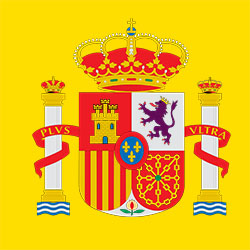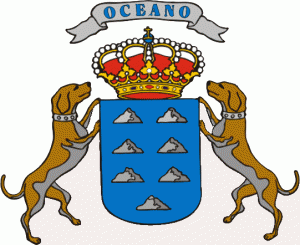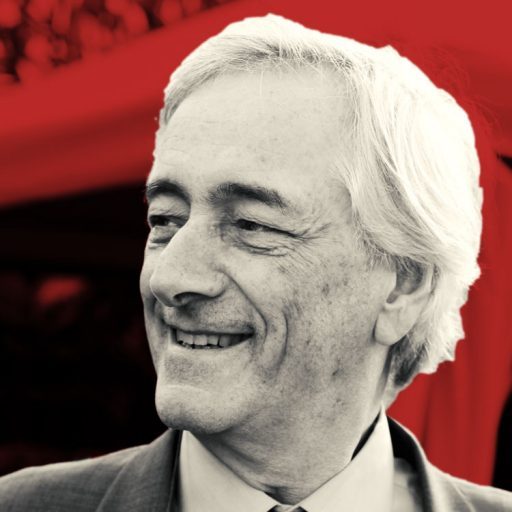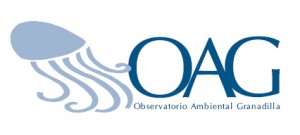PROTEGEMOS LA NATURALEZA DE LA GENTE PARA LA GENTE
NATURE CONSERVATION & ENVIRONMENT
-
OAG
Granadilla Environmental Observatory (2008 - 2018)
POSITION
In April 2008, I was named Director of a newly created Spanish State foundation for a period of five years. In June 2013 I agreed to stay for a second period, which ended in August 2018. Its name is «Fundación Observatorio Ambiental Granadilla», with acronym OAG.
director@oag-fundacion.org
MISSION
The OAG was created for the environmental vigilance of a new controversial harbour that is being constructed at Granadilla, in the South of Tenerife. Additionally, and imposed by the European Commission as a compensation measure, the OAG must monitor marine biodiversity in the Canary Islands (with extension to Macaronesian waters) and give advice regarding the conservation of marine species of European interest as well as for Natura 2000 protected areas in the sea.
www.oag-fundacion.org
AT WORK
I started the foundation from scratch and with many «winds blowing against it». After a decade of work, I am proud of our achievements and especially about my team. It has been a pleasure to go to work each morning and join them. A fantastic group of people. The vigilance of the port of Granadilla has been duly covered and we were pushing to develop REDMIC, an integrated repository for marine data, which I hope can be my legacy of this final stage of my career. You can have a look at it (see link below) and gather an idea of its achievement. Unfortunatelly it is still not fully developed and its continuity is not secured. We have adscribed REDMIC to the Creative Commons (CC) licence and placed the whole application with its documentation in GitLab (https://gitlab.com/redmic-project/info), to make it available to any interesed person or institution that wants to use it, or hopefully develop it further.
BALANCE
Having structured a specialized observatory for the sea, I tried to expand the mission in the Statutes of the OAG to increase its potential activities to the monitoring of other future infrastructures and the marine environment as a whole, not just the biodiversity. My vision: to have a European shaped marine observatory in this part of the Atlantic. The OAG was established permanently and it would be wise to take advantage of it. However, the two Canarian universities and the Department of Environment of the Canarian Government, which are members of the Board, are against any change in the present Statutes. After five years of struggling, I threw in the towel not without frustration.
The 30th June 2018 I ended my second term as Director and I wrote a general memo about this decade in the OAG (only in Spanish, i’m afraid), but also expressing some worries about the future of the fundation, which inexpectedly ended in the hands of the Viceministry of the Environment of the Canarian Goverment, a polititian.
- El Observatorio Ambiental Granadilla. Balance crítico de una década (2008-2018).
- Memoria del proyecto REDMIC – Repositorio de datos marinos integrados de Canarias (2018).
- El OAG se queda sin dirección y su control pasa a manos políticas. (Reportaje de J.C. Mateu, DA 3-7-2018)

-
ECNC
European Centre for Nature Conservation (1994 - 2001)

POSITIONI was elected President of the ECNC in November 1994 and re-elected in June 1998 at Keszthely (Hungary) until July 2001.
MISSION
ECNC aims to bridge the gap between science and policy to actively promote the conservation of nature and especially of biodiversity in Europe. It seeks the integration of nature conservation considerations into other policies. Nature has intrinsic values relevant to the economy and European culture, and integration is the only way, with long-term perspectives of survival. For instance, see my speech at the presentation of the EECONET manual (open pdf).
AT WORK
During my seven years of service at the ECNC, I promoted the structural reform of the foundation and its mission (new Statutes), guiding its action by means of an operative network of European institutions and with the assistance of a Scientific Council. We developed a sort of hybrid between an association and a foundation, and the concept seems to work well. The ECNC has a consolidated niche in European environmental policy affairs. Mr. Rob Wolters is still its zealous Director, and Sir Brian Umwin (UK) who followed me in the Presidency has been replaced by Prof. Dr. Mustafa Kemal Yalınkılıç (Turkey).
See my address-notes in the ECNC Newsletters: 1998a, 1998b, 2000, 2001, and 2007 (15th Anniversary)
I have warm memories of the productive Board meetings held in several European cities (Brussels, Copenhagen, Bath, Budapest, Thesaloniki, or Strasbourg) but the best were at Tilburg, where the headquarters are. Creative work, nice food, calm people bicycling everywhere, and sometimes snow (very exotic for me!). Yes, I made good friends that I miss, and I even survived the bottles of ‘Bools’ that invariably were given to me as a present. At the end, I started appreciating this explosive beverage.
I heard with bit big sadness that the ECNC will stop activity the 31 December 2017.

-
ENVIRONMENTAL POLICY ADVISOR
Canarian Regional and Spanish Governments (1987-1993)

Cabinet Advisor to the President of the Government of Spain (1987)
I joined the cabinet of President Felipe González for organising the first summit on environmental policy in Spain. It was finally held at Trujillo (16-19 July 1987) with the participation of the Vice-President of Spain Alfonso Guerra, four Ministers, top-level administrators, representatives of public businesses, international institutions and the media. It was a peculiar experience to work at ‘La Moncloa’ and being so close to The Power.
See my personal letter to Vice-President Alfonso Guerra

Advisor on Ecology and Environmental Policy to the President of the Canary Islands Government (1988-1991)
I began with President Fernando Fernández and continued with President Lorenzo Olarte. Among other tasks, I drafted three legislative acts: for the evaluation of ecological impact, about the symbols of nature for the Canary Islands, and a law for protected areas. This latter decayed in the parliamentary process, but the structured scheme I designed succeeded later via the Fenix Project (which I directed). In these years I also became interested in tourism and its impact on the environment (see publications)
As an advisor, you must help politicians to assume their responsibility and not hide behind technical reports, and conversely, you have to insure that technical staff do not impose their personal views on the politicians. Your advice may not always be followed. You can be right, but not have the right to decide. It is a hard and lonely job. But useful.


Advisor to the Minister of Economy and Finance of the Canarian Island Government (1991-1993)
I collaborated with the Minister José Miguel González in the economic plans of the Canarian Region with the aim to minimize their environmental impact. For common people it is obvious that a caterpillar crashing down trees in a forest is destroying nature, but it is not so obvious that a pen signing budgets goes first. Tourism and sustainable development continued to be also common issues in my agenda.
POST DATA
Yes, the bearded guy in the top picture of this section is Fidel Castro. I met him when he did a stop-over in the Canaries on his trip to Cuba (June 1996). He wanted to visit the Teide National Park and I was called by President Hermoso to join the retinue for explaining to the Comandante the mysteries of vulcanism and the park. Surprisingly, Fidel was really interested in my improvised interpretations, and I enjoyed talking to him. Quite a character, I must say.
-
IUCN
The World Union for Conservation (1979 - 2012)

POSITIONS
- Member of the Species Survival Commission. IUCN Mid Atlantic Invertebrate Group (2017-2020)
- Election Officer at the 3rd and 4th World Conservation Congresses at Bankgok (2004) and Barcelona (2008), respectively.
- Regional Councillor for Wester Europe (1990-1996) I was elected in December 1990 (Perth, Australia) and reelected in January 1994 (Buenos Aires).
- Consultant member of the Species Survival Commission Consultant member, from 1979-81. Website at SSC.
- Member of the World Commission of Protected Areas. Period 1990 – 15/5/2012. Website at WCPA
IUCN`S MISSION
To influence, encourage and assist societies throughout the world to conserve the integrity and diversity of nature and to ensure that any use of natural resources is equitable and ecologically sustainable.
AT WORK
My relation with the IUCN has been manifold. I have learned much about conservation using the guidelines and technical books published by the various Commissions. I joined two of them, the SSC and WCPA benefitting from the amount of expertise they provide. Thus, when I served for two terms as Regional Councillor one of my goals was to support the Commissions`s work as much as possible. They represent the main conservation doctrine generating bodies that we have in the world. I am proud of having participated with many others in the drafting of «Caring for the Earth»
As Counsellor I headed the Membership Committee and promoted, along with other colleagues, the recognition of the National Committees (see article) until they were formally recognised and incorporated in the Statutes. I also worked hard in the revision of the Statutes (as Vice-President of the Committee) and for consolidating Spanish as the third official language of the Union. Since the General Assembly celebrated in Perth (1990), I have attended all subsequent venues at: Buenos Aires (1994), Montreal (1996), Amman (2000), Bangkok (2004), Barcelona (2008) and Jeju (2012). These are privileged opportunities for grasping the real evolution of conservation affairs and societal reactions, including the environmental movement. At Bangkok and Barcelona I was the Election Officer. Quiet an experience (see memo).

-
ICONA
National Institute for the Conservation of Nature (1976 - 1985)
A BEAUTIFUL EXPERIENCE
The former National Institute for Nature Conservation (ICONA) was created in 1971, basically by fusing the previous Forest Services. Not surprisingly, it was dominated by forest engineers with a peculiar view about nature and ecology, at least when I was contracted in 1976, soon after finishing my Degree in Biology and military service. When I passed the official exams (nº 1) in 1980 and became a formal civil servant, three other pioneer biologists joined ICONA. Just a start. Nature conservation was something new in my country, and I sincerely thank ICONA and especially my open-minded boss, José Miguel González, for having invested much effort and resources in traning me in conservation, particularly in the United States
See alumni of XV International Seminar on National Parks and Equivalent Reserves
I served in ICONA in different post, interrupted by some more or less extended leaves, until I was transferred to the recently established Government of the Canary Island, where I worked shortly as Expert in Foreing Affairs for the Department of the Environment.
- 1976-1980. Contracted Biologist.
- 1980-1981. Technical Assessor of the XI Regional Inspection (Canary Islands).
- 1981-1984. Director of the Teide National Park.
- 1984-1985. Head of the Ecological Cabinet of the S/C de Tenerife Service.
- 1993-1994. Technical Advisor of the Subdirectory General of Protected Areas.
- 1994-1994. Head of Conservation at the Ecological Centre of La Laguna.
During these years I conducted natural resources inventories, reported on land use planning, wrote management plans for the Teide and Garajonay National Parks, organised and directed the first Interpretive Centre in Spain (see brochure), introduced the concept of threatened species recovery, conducted research projects on alien species, completed wildlife studies, designed the network of protected areas of several Canary Islands, etc. Some of the results are listed in the section Production > Conservation.
Those were happy days of much field work peppered with good camaraderie and fascinating places, all embedded in a spirit of service that I missed thereafter. For some time –I was the first biologist to become director of a national park– the Teide National Park was a second home for me. And park rangers all over the world, were a sort of extended family happy to receive a `parker» from the Canaries with open arms.
I learned that conservation of nature has as much to do with people as with animals and plants, and you have to love people as much as wildlife. We protect nature from people for people. If you work on conservation with your right hand, always keep in the left a civil code and the laws. Otherwise you may cross the thin line and start becoming an ecofascist. I also learned that conflicts are caused normally by problems of communication. None of these lessons were told to me at the University.
At present, when I do Tai-chi every morning in my studio, I look through the window at the magnificent Teide Peak in the distance. An old friend.
LA CONSERVACIÓN DE LA NATURALEZA ES UNA CAUSA NOBLE


